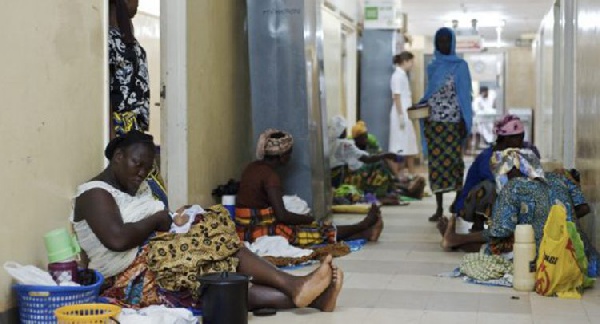When Ghana’s new administration assumed office earlier this year, the state of the nation’s public hospitals came under urgent scrutiny. Health Minister Kwabena Mintah Akandoh revealed that the previous government had left behind what he described as “sick” hospitals; facilities crippled by broken or malfunctioning medical equipment that had severely undermined healthcare delivery nationwide. Speaking during the Government Accountability Series on July 18, 2025, he painted a bleak picture of wards left without working ventilators, imaging machines confined to disrepair, and basic sterilization tools rendered unusable .
The Minister attributed the health sector’s inherited challenges to widespread neglect. “Many hospitals were left in a state of disrepair, with critical medical equipment either malfunctioning or completely broken down,” he said, emphasizing that such conditions had created a backlog of unmet health needs and placed the lives of countless patients at risk. This systemic failure, according to Akandoh, demanded a rapid and coordinated response to restore public confidence in Ghana’s hospital network and to prevent further loss of life from treatable conditions .
To kick-start the recovery, Minister Akandoh announced that his team had already directed resources toward upgrading key institutions. The Komfo Anokye Teaching Hospital’s Maternity and Children’s Block received immediate attention, as did major referral centres in Accra and Cape Coast. “Hospitals such as Korle Bu, Cape Coast Teaching Hospitals, and LEKMA Hospital have received essential equipment, including ventilators and oxygen plants. These are the tools we need to save lives every day,” he stated, underscoring that restoring functionality to life-saving devices was the top priority in the initial phase of rehabilitation .
Despite these initial gains, the Minister acknowledged that significant gaps remained. Dozens of


district and regional hospitals still await renovations, equipment replacement, and the establishment of dependable maintenance systems. “However, there are still gaps. Many facilities need renovations, new equipment, and dependable maintenance systems,” Akandoh admitted, vowing that his ministry would marshal domestic investment and pursue international partnerships, particularly through public-private collaborations to address the shortfall and secure sustainable upkeep of medical assets.
The ambitious Agenda 111 project, launched with fanfare as a flagship infrastructure drive, also came under fire during the Accountability Series. Although the government invested US$344 million toward building and equipping 111 new health facilities, none of the planned hospitals had been completed or operationalized by the time of handover.
“Despite an investment of $344 million into Agenda 111, we did not meet a single completed and operationalised hospital. Worse still, over a billion Ghana cedis in arrears was left behind for us to settle,” the Minister disclosed, highlighting the financial liabilities inherited alongside unfinished projects. In response to these revelations, the Ministry of Health has moved swiftly to establish an oversight mechanism for all ongoing infrastructure works.
District health directorates are now required to submit monthly progress reports on renovations and equipment installations, while maintenance contracts will be renegotiated to include performance guarantees and punitive clauses for prolonged downtime. By tightening procurement protocols and enhancing accountability, the new administration aims to prevent a recurrence of the chronic equipment failures that once left Ghana’s hospitals effectively “sick”.
Looking ahead, Minister Akandoh insisted that the lessons learned from this rocky transition would inform a broader reform of Ghana’s healthcare procurement and maintenance culture. The commitment to bridge infrastructural and technical gaps through domestic funding and international partnerships signals a new era of transparent governance and collaborative problem-solving. If successful, these measures could not only heal the wounds of the past administration’s neglect but also lay the groundwork for a resilient health system capable of serving every Ghanaian, from urban centres to the most remote districts.
Source: NDC met ‘sick’ hospitals with malfunctioning medical equipment — Akandoh



